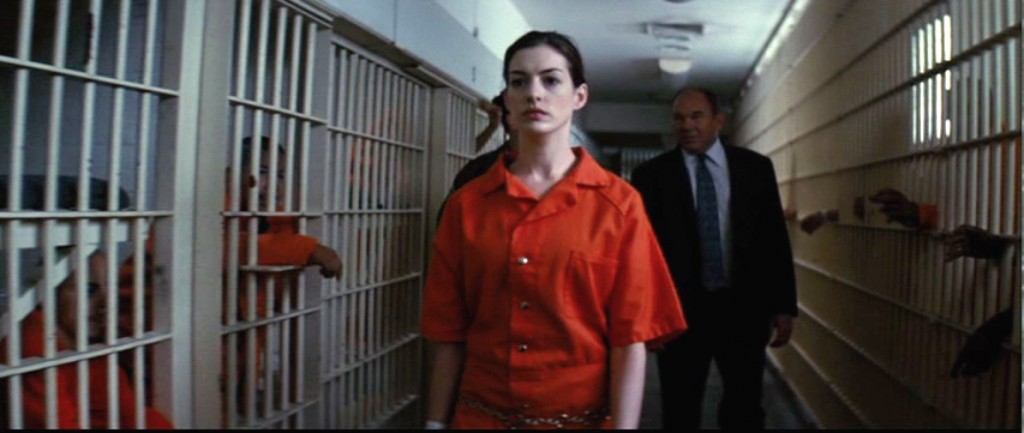Batman: The Dark Knight Rises part 9
Act IV of The Dark Knight Rises begins by checking in with Selina, who is being held at Blackgate Prison for kidnapping the congressman back in Act I. The screenplay takes care to note that Selina, despite her seeming vulnerability amidst a population of convicted criminals, can take care of herself in the worst of circumstances. The script presents this as a physical gag, but it’s important to keep in mind that Selina, as an anti-Batman (and anti-Bruce) (they’re both in prisons at this point), is still at her physical peak compared to Bruce. Bruce is in prison at Bane’s hand, but Selina is in hers by her own hand. One could ask if either character “deserves” his or her imprisonment, and do well to do so, it’s kind of the question of the moment as the narrative moves forward. “Deserves” is that most moveable of moral ends, especially in regards to crime and punishment, and it exists always in relation to its society. Does Bruce “deserve” to lie, broken, in a foreign prison while Bane plots to destroy his own city with the fruits of his own wealth? How many men lie in Blackgate on this day as a result of Bruce’s actions, and how many of them consider themselves innocent or misunderstood? Does Selina “deserve” to be in prison, when she has hurt no one who couldn’t afford it, and only wants to get by in a society that won’t let her forget her past? (Fantine! Although Selina has it much better than Fantine, she doesn’t have to cut her hair, pull her teeth or die of tuberculosis, and she’s developed keen fighting skills to deal with the men who might brutalize her.) “The Dent Act” is mentioned as covering a woman placed in Blackgate (why Selina is in a prison instead of a jail, when she has been convicted of nothing, is another question), and we are meant to understand that the Dent Act has been perhaps overreaching in its efforts to clean up Gotham, which raises all kinds of uncomfortable questions of the authority we grant to the police (and the army) to deal with the people we don’t want to deal with. The Thin Blue Line, we remember, exists primarily to keep property in the hands that have it. Possession is nine-tenths of the law, the police are attack dogs of the possessors. (Funny how the wealthiest wish to avoid paying taxes to the government that keeps their wealth safe and growing.)
